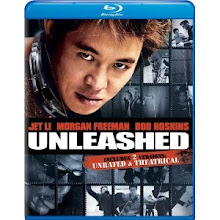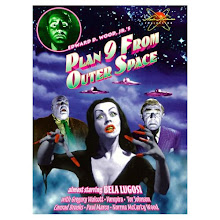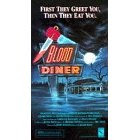by Jason Pyles
Perhaps the movie’s brief reference to Gene Kelly reinforced the notion, but “Billy Elliot” continually reminded me of the “Singin’ in the Rain” (1952) number where Kelly repeatedly sings, “Gotta dance!”
It’s evident throughout this film that Billy Elliot’s gotta dance.
I love people like that — people who are implacably determined to do what they love. One thinks of the Chris Smith documentary, “American Movie” (1999), where the persistent, aspiring filmmaker, Mark Borchardt, absolutely has to make movies, at all costs, no matter what. I fancy myself as that kind of a person, too, but a movie critic sort. Passion often gives way to obsession.
Now, I wasn’t privy to Andy and Karl’s inside joke about this film’s “arguably homosexual agenda,” but I’ll proceed notwithstanding.
Above all, the grand theme of “Billy Elliot” (which dwarfs any homosexual agenda) is acceptance.
Acceptance is the electrical current that moves the film’s characters (and is perhaps what Billy feels when he’s dancing). His whole family still struggles to accept the loss of the mom, Jenny Elliot, particularly Billy and his father, Jackie.
Tony, the brother, has trouble accepting pretty much everything, from the scabs crossing the picket lines to his brother’s general existence. But Tony’s turning point regarding acceptance occurs when he can at least appreciate his father’s loss of conviction to maintain the strike. He embraces his father, and later, Tony figuratively embraces his brother’s ambitions.
Naturally, the movie’s glaring neon-sign issue of acceptance is Billy’s desire to become a danseur (or male ballet dancer). But there are also acceptance themes prevalent with Billy’s friend Michael, and his inclination toward cross-dressing and presumably homosexuality.
All this isn’t to say that homosexuality isn’t important to the film, or, at least, to its director. Stephen Daldry’s film that followed “Billy Elliot,” in 2002, was “The Hours,” starring Meryl Streep, Julianne Moore and a nearly unrecognizable Nicole Kidman. That film was adapted from a Michael Cunningham novel based on writer Virginia Woolf and her book, “Mrs. Dalloway.” It’s an intriguing and unusual film, but it’s even more replete with undertones of homosexuality than “Billy Elliot.”
A little, informal research suggests that even though Daldry has a wife and a child, he is also quoted as admitting he’s gay. What can be definitively concluded from all of this? Nothing — except maybe that “Billy Elliot” has an “arguably homosexual agenda.”
Note: If you appreciate Stephen Daldry’s work (as I do), watch for his current film, “The Reader,” starring Ralph Fiennes and Kate Winslet.
Tuesday, December 16, 2008
Subscribe to:
Post Comments (Atom)






























































No comments:
Post a Comment